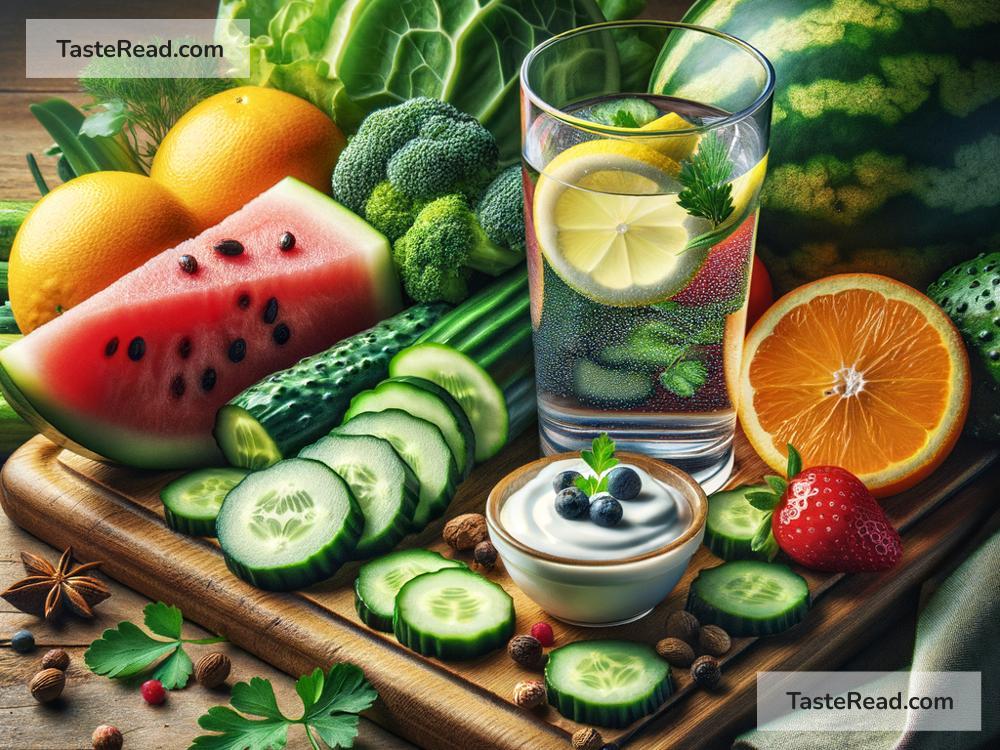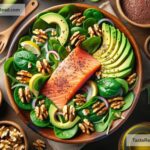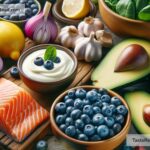Foods That Reduce Risk of Dry Mouth
Dry mouth, which doctors call “xerostomia,” happens when your mouth doesn’t make enough saliva. Saliva is a natural fluid that keeps your mouth moist, helps you chew and swallow food, and even protects your teeth from decay. Without enough saliva, your mouth can feel dry and uncomfortable. In addition to being unpleasant, long-term dry mouth can lead to bad breath, gum disease, and tooth decay.
Luckily, certain foods and drinks can help combat dry mouth. If you often face this problem, changing your diet may help you feel better. This article dives into some simple, everyday foods that can reduce the risk of dry mouth.
How Does Food Help with Dry Mouth?
Eating the right types of food can:
- Increase Saliva Production: Some foods stimulate the salivary glands, encouraging them to make more saliva.
- Keep Your Mouth Hydrated: Foods with high water content naturally help keep your mouth moist.
- Provide Essential Nutrients: Certain vitamins and minerals promote healthy saliva production and oral health.
With this in mind, let’s explore specific foods that fight dry mouth.
Foods That Fight Dry Mouth
1. Fresh Fruits
Fruits like watermelon, oranges, and strawberries can help keep your mouth hydrated. They are high in water content, which makes them great for increasing moisture in your mouth. Citrus fruits such as lemons and limes can also stimulate saliva production, but be mindful not to overdo it—too much citrus can irritate your mouth if you have sores.
For a refreshing snack, try eating a slice of watermelon or drinking freshly squeezed orange juice.
2. Vegetables
Like fruits, many vegetables also contain lots of water and can help with dry mouth. Cucumbers, celery, and zucchini are excellent choices because they are not only hydrating but also easy to chew. Crunchy raw veggies can stimulate your salivary glands, making your mouth produce more saliva.
Carrots, bell peppers, and leafy greens are also good veggies to include in your diet. Blending them into smoothies or soups may help if you find them hard to eat raw.
3. Chewy Foods
Chewing naturally encourages saliva production. Foods like sugar-free gum or fibrous fruits (think apples and pears) can keep your mouth busy and hydrated. Avoid sugary gum, as it can cause cavities, which are another issue linked to dry mouth.
If you’re looking for a chewy option that’s more protein-packed, try jerky or chewy snacks like dried cranberries—but make sure they have little to no added sugar.
4. Foods Rich in Vitamin C
Vitamin C supports healthy gums and oral tissues and may encourage saliva flow. Foods like kiwi, pineapple, and papaya not only boost your immune system but also help fight dry mouth. These fruits are tangy and juicy, giving your mouth a much-needed moisture boost.
Remember, balance is key. Eating Vitamin C-rich fruits in moderation will prevent excessive acidity in your mouth that might cause irritation.
5. Foods High in Water Content
When battling dry mouth, hydration is essential. Foods like soups, broths, and stews offer extra water and are great choices for people who struggle with chewing or swallowing dry food.
For snacks, yogurt and cottage cheese are soft, creamy options that make it easier to eat when your mouth feels dry. Plus, they are packed with nutrients!
6. Nuts and Seeds
Chia seeds and flaxseeds are great sources of omega-3 fatty acids and mucilage—a substance that can help soothe and hydrate dry tissue in your mouth. Soaking chia seeds in water and creating a gel-like mixture is particularly beneficial.
Nuts like almonds and walnuts are also helpful, but it’s best to pair them with a glass of water since they can sometimes feel dry on their own.
7. Herbal Teas
While tea is not technically a food, warm herbal teas can be soothing if you have dry mouth. Chamomile, ginger, and green tea are excellent choices because they keep you hydrated and may prevent dryness.
Just make sure to avoid caffeinated or heavily sugary teas—they can actually make your dry mouth worse.
Hydration is Key: Drink Enough Water
No matter how good your food choices are, staying hydrated is crucial. Drink plenty of water throughout the day, especially if you’re eating dry or salty foods. Water helps flush your mouth, rinse away bacteria, and supports saliva production.
If plain water feels boring, try infusing it with fruits like berries, lime, or cucumber for a fun twist.
Foods to Avoid
While some foods help keep your mouth moist, others can make dryness worse. Here are some foods to steer clear of:
- Salty Snacks – Potato chips and pretzels can dry out your mouth fast.
- Sugary Foods and Drinks – Candy, soda, and cakes increase your risk of cavities and worsen dry mouth.
- Caffeinated Drinks – Coffee and energy drinks can dehydrate you.
- Spicy Foods – They can irritate your mouth or worsen dryness.
Final Thoughts
Dry mouth can be frustrating, but tweaking your diet is a simple and natural way to reduce symptoms. Eating hydrating foods like fruits and vegetables, avoiding sugary or salty snacks, and drinking plenty of water can make a big difference. If your dry mouth persists, consult your doctor or dentist—sometimes it may be linked to underlying health issues that need attention.
By choosing the right foods and staying hydrated, you can take control of dry mouth and enjoy a healthier, happier smile!


